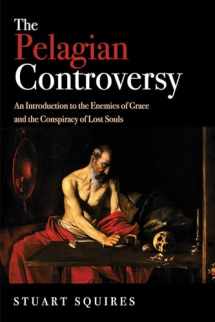
The Pelagian Controversy: An Introduction to the Enemies of Grace and the Conspiracy of Lost Souls
Book details
Summary
Description
The Pelagian Controversy (411–431) was one of the most important theological controversies in the history of Christianity. It was a bitter and messy affair in the evening of the Roman Empire that addressed some of the most important questions that we ask about ourselves: Who are we? What does it mean to be a human being? Are we good, or are we evil? Are we burdened by an uncontrollable impulse to sin? Do we have free will? It was comprised by a group of men who were some of the greatest thinkers of Late Antiquity, such as Augustine, Jerome, John Cassian, Pelagius, Caelestius, and Julian of Eclanum. These men were deeply immersed in the rich Roman literary and intellectual traditions of that time, and they, along with many other great minds of this period, tried to create equally rich Christian literary and intellectual traditions. This controversy—which is usually of interest only to historians and theologians of Christianity—should be appreciated by a wide audience because it was the primary event that shaped the way Christians came to understand the human person for the next 1,600 years. It is still relevant today because anthropological questions continue to haunt our public discourse.


We would LOVE it if you could help us and other readers by reviewing the book
Book review



